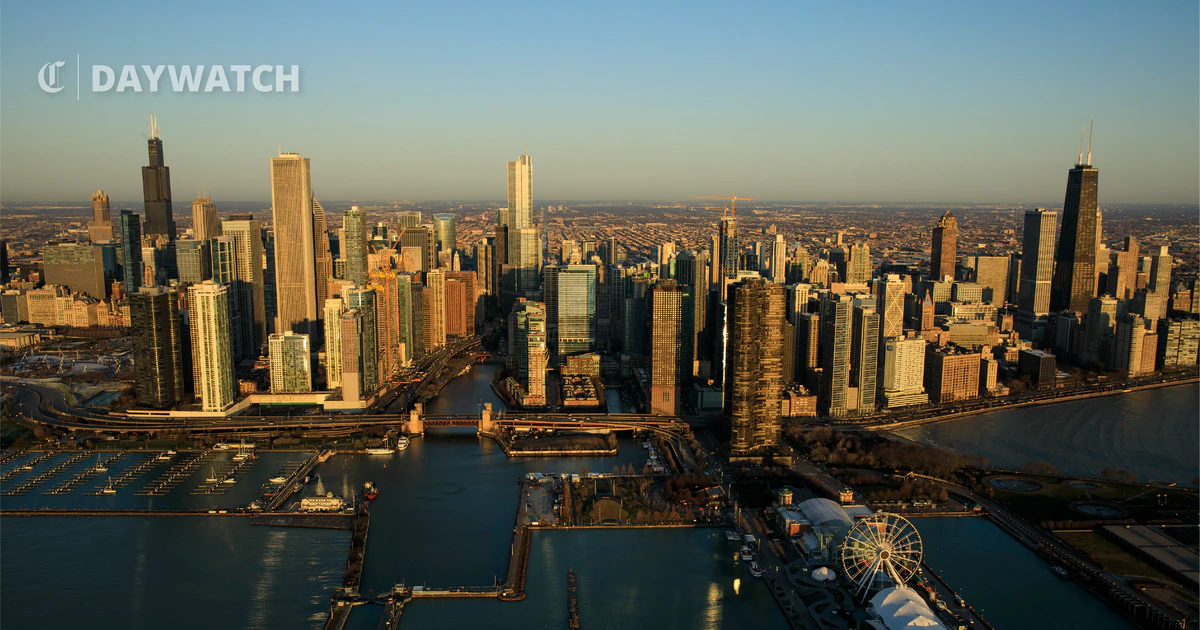Good morning, Chicago.
The days of Chicago reporters and news photographers relying on a live, crackling police scanner to chase news and tell the public what officers are doing in real time are quickly coming to an end.
The Chicago Police Department is moving all of its radios to digitally encrypted channels by the end of this year, limiting access to one of the few ways the public can best monitor police activity. Journalists have had a long tradition of listening to police radio traffic to know when breaking news is occurring and to get to the scene of an unfolding event.
Adam Scott Wandt, an assistant professor and vice chair for technology at the Department of Public Management at John Jay College of Criminal Justice, said the change equals an end to citizens around the country having full access to know what police are doing as they work.
“Then there’s a whole other class and that’s the class of reporters in the media, and I am a firm believer in government transparency and accountability,” Wandt said. “And it certainly worries me, significantly worries me. If the police lock the media out of live radio broadcasts, it in my opinion, certainly reduces the level of accountability that police departments will face.”
Read more on this story from Paige Fry.
Here are the top stories you need to know to start your day.
COVID-19 tracker | Monkeypox tracker | Afternoon briefing | Compare gas prices | Puzzles & Games | Daily horoscope | Ask Amy | Today’s eNewspaper edition
A glass shelf displaying some of the most notable challenged books in the country adorns the entryway of the Chicago Public Library’s Lincoln Belmont branch. The books are surrounded by yellow tape and red signs that inevitably steer the attention of those who walk inside to the titles that have been banned, or attempted to be banned, in other libraries across the country.
But instead of taking the books off the shelves, visitors at the library were invited — in celebration of Banned Book Week 2022 — to learn about each one of them and encourage discussions about the topics for which they were banned. City Lit Theater Company joined the efforts by presenting a theatrical display of iconic banned and challenged books, allowing people to make their own decision on whether to read them.
:quality(70)/cloudfront-us-east-1.images.arcpublishing.com/tronc/CMRT6BLIORDJJJDQ7UDT4SMY64.jpg)
Chicago Public Schools leaders and elected officials gathered seven months ago to celebrate the renaming of a Lakeview elementary school to honor the abolitionist Harriet Tubman. The change was heralded as a model of what a school could accomplish when it’s united.
Now, just weeks into the new school year, the Tubman Elementary community appears to be divided. Enrollment is down about 100 students compared with the previous year. Tubman’s principal, meanwhile, is under fire for her handling of student safety complaints. About three months ago, Tubman’s Local School Council asked CPS CEO Pedro Martinez to begin dismissal proceedings against Principal Kimberly Gibson — but there has been no resolution, pending various CPS investigations.
:quality(70)/cloudfront-us-east-1.images.arcpublishing.com/tronc/V42I25T6MBDIVFP2X3O6DEDRWQ.jpg)

Afternoon Briefing
Daily
Chicago Tribune editors’ top story picks, delivered to your inbox each afternoon.
Nestled in a leafy and prosperous swath of suburban DuPage County, Center Cass School District 66 in Downers Grove at first glance appears to exemplify the best of public education.
The district boasts three tidy and modern school buildings, enthusiastic teachers a reputation for academic rigor and plenty of personal attention for its 1,100 students in kindergarten through eighth grade.
But the district’s dire financial woes have resulted this fall in steep budget cuts, including reducing the number of teachers and building custodians, eliminating all extracurricular programs and athletics, cutting bus routes and shortening the school day.
:quality(70)/cloudfront-us-east-1.images.arcpublishing.com/tronc/R3XJMX5PCRFO3G2OGH5D6WTFXY.jpg)
Khalil Herbert stood at his Soldier Field locker about a half-hour after the Chicago Bears squeaked out a 23-20 win over the Houston Texans and gave a one-word answer for how he felt.
“Sore,” he said with a smile.
But sore in the best way, writes Colleen Kane.
:quality(70)/cloudfront-us-east-1.images.arcpublishing.com/tronc/3A4OSRTDCZFWPLRJAQEDJ25I4Y.jpg)
Nick Kindelsperger writes, as Black Americans migrated from the Southern United States, they brought with them their barbecue prowess, but also had to adapt to cooking in a large and often cold city. Because there wasn’t room for traditional barbecue pits, they quickly switched over to the distinctive aquarium smokers that could be housed indoors. With Chicago’s enormous meatpacking industry nearby, a number of entrepreneurs learned how to transform one of the cheapest cuts, rib tips, and turn them into a true delicacy.
